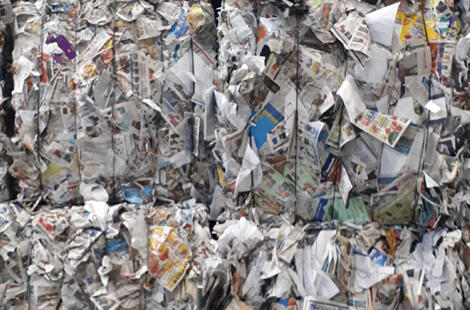- Log in to post comments

Urban Impact’s End Markets commentary essentially began this time last year. One year ago, there was active information being circulated in the recycling industry on upcoming changes to end markets in China. Discussion about the changes or proposed new stringent quality standards seemed impossible. There were more questions than answers, and it seemed that the information being provided to suppliers was changing every day. Without definitive requirements on end market specifications the processing industry could not understand what changes needed to be made at a processing level to accommodate emerging and changing specifications. Quite frankly, it was chaos.
There are a wide variety of issues that are contributing to the challenges that the recycling industry is trying to overcome. Firstly, Quality is always at the forefront of Plant operations priorities. It takes a complex process to achieve a product that end market mills can use as a quality feed stock to make the new packaging or products. With uncertainty on the end market specifications – you cannot formulate a plan to invest and change the quality of the materials created. Secondly, continued and every changing composition of inbound packaging materials adds to the complexity of the issue on redesign and investment on existing processing and plant infrastructure.
What does one invest in today for a changing package of tomorrow? The package of today is certainly not going to be what the producers of packaging are using in the near future. Thirdly, inbound materials contain a wide variety of contaminants. Consumers and customer base in North American in particular has been pushing for simpler, easy to use collection systems. With this simplicity in use and collection comes a cost; more contaminants in the materials which degrades the quality product and slows down processing throughput.
On a positive note, there continues to be media updates on investments in end market capacity in South East Asian countries, and in addition, there are recent stories on investments being made in closed down cardboard mills on the eastern US seaboard. The end market is going to have to shift geographically and it is always very encouraging to see increased domestic processing of a variety of materials. It would be great news if additional capacity investments were to be made in west coast and mid-west mills. It would also be great news if mills were broadening the range of materials that they require including such materials as: mixed paper, office or higher-grade paper, and a variety of plastics. We will keep you posted.
Pricing for end market material such as cardboard, mixed paper, a variety of plastics grades continues to be lower than historical averages. Alternate non-China markets have an ample supply of recycling material to choose from. The secondary or alternate markets can be very selective on the types of material that they buy and at what price, they are in the driver’s seat. Processors around the globe are happy to have movement of recycled materials and end markets that are buying; the price at this point is not as important, what is important is that all parts in the supply chain are moving.
There is continued media coverage on a wide variety of issues that have arisen as a result in the significant changes to end markets in China specifically. Urban Impact has a variety of articles blog posts at www.urbanimpact.com/blog. In addition, we have inventoried a variety of supporting news articles relating to the subject, if you would like to receive a copy of this index, please let us know and we would be pleased to forward.
The focus for Urban Impact in the foreseeable future continues to be on the quality of both inbound and outbound materials, education of our customer base, education and investment in our staff teams that delivery processing services and investing in innovative processing equipment. We are confident that this recipe will allow Urban Impact to continue to provide consistent and quality processing services to our wide range of clients.
